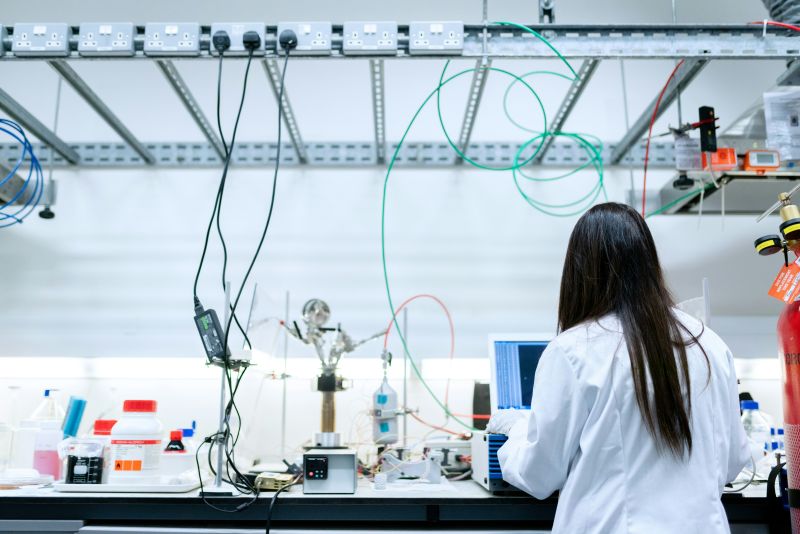
Photo by Thisisengineering RAEng on Unsplash
A final draft of the new science curriculum is expected to be available in Term 2 of 2024.
St Cuthbert’s College principal Justine Mahon said she believed the delay “is a positive move.
“Scrutinising the draft science curriculum is an imperative.” Mahon added that the Ministry of Education “need to examine what is in the draft curriculum and ensure that core sciences will be taught systematically.”
Read the Term 4 edition of School News HERE
Incoming Ministry for Education, Erica Stanford said that the curriculum will be a top priority. She called the draft “extremely worrying… it’s so important to lay out the core curriculum knowledge and the other that it is to be taught especially in topics like chemistry, biology and physics.”
In July this year, the draft curriculum was leaked to other educators after science teachers who received it expressed concern at its content.
The document proposed teaching science through five key context areas such as the Earth system, biodiversity, food, energy and water and infectious diseases.
It was criticised by some educators as lacking core science knowledge. Association of Science Educators president Doug Walker said at the time:
“Certainly in its current state I would be extremely concerned with that being our guiding document as educators in Aotearoa. The lack of physics, chemistry, Earth and space science, I was very surprised by that.”
New Zealand Institute of Physics education council chairman David Housden added that physics teachers “were shocked. I think that physics and chemistry are fundamental sciences and we would expect to find a broad curriculum with elements of it from space all the way down to tiny particles.”
Other detractors included Secondary Chemistry Educations New Zealand co-chairperson Murray Thompson and Michael Johnston from the New Zealand Initiative.
However, others have said that the controversy was blown out of proportion, including Labour MP Ginny Anderson.
“There was always an intention for core areas such as physics, chemistry and biology to be included in that curriculum. So, I do think a bigger meal was made of it than what was ever intended.”
Other defenders of the draft include Dr Jared Carpendale, a former secondary school physics and chemistry teacher and current Senior Lecturer in Teacher Education at Massey University. In an opinion penned for Stuff, Dr Carpendale pointed out that the draft curriculum was designed not only for the 20 percent of students that would go on to study post-compulsory science, but targeted toward developing essential skills and knowledge for the whole student body.
He wrote that the new science curriculum was aimed at “seeing connections between concepts and appreciating the nature of science and how scientists work together, often in transdisciplinary ways, to generate new knowledge.
“The draft curriculum document promotes a transdisciplinary way of thinking and teaching science, removing traditional subject silos, encouraging teachers to engage students in learning through meaningful and authentic contexts.”
Dr Cathy Buntting, one of the curriculum writers and director of the Woolf-Malcom Institute at the University of Waikato said “internationally, we see a call for greater engagement of students in science… it’s about teaching science in meaningful contexts.”
Buntting said that some of the rhetoric in the media was “alarmist”, noting that the national science curriculum, like the wider NZC, was never meant to contain “fine grain” detail. Instead, teachers would need to be supported to design localised curricula through the suggested contexts.
Buntting elaborated that the Science Learning Hub was already doing work to support teachers in curriculum design, and there is a “strong opportunity for teacher associations to lead innovative approaches that are enabled through the new approach being suggested.”
Sara Tolbert, Associate Professor of Science and Environmental Education at the University of Canterbury and Dr Cathy Buntting’s co-writer, noted that long-running research has demonstrated that “decontextualised scientific facts and theories has not supported student learning.
“This approach has ill-prepared students to engage competently or critically with science, and has failed the expand participation in science careers or degree programmes.”
Tolbert says that science itself is becoming more interdisciplinary as we attempt to tackle global issues such as climate change.
“A science curriculum for today’s world must be interdisciplinary and reflect these changes. Students need to be able to see connections between traditional disciplines.”
A new report from the University of Auckland’s Our Voices Project asks young people what…
The government has opened a tender for new standardised assessment tests, leaving educators shocked and…
Early in her career, Kiri Turketo found inspiration in an unlikely source. In this Principal…
Real stories of dedication, challenges, and triumphs from educators in NZ. Part six comes from…
Is fast furniture impacting your school's environmental footprint? We explore eco-friendly solutions to reduce furniture…
A new report from the New Zealand Initiative argues we need a stronger and clearer…
This website uses cookies.